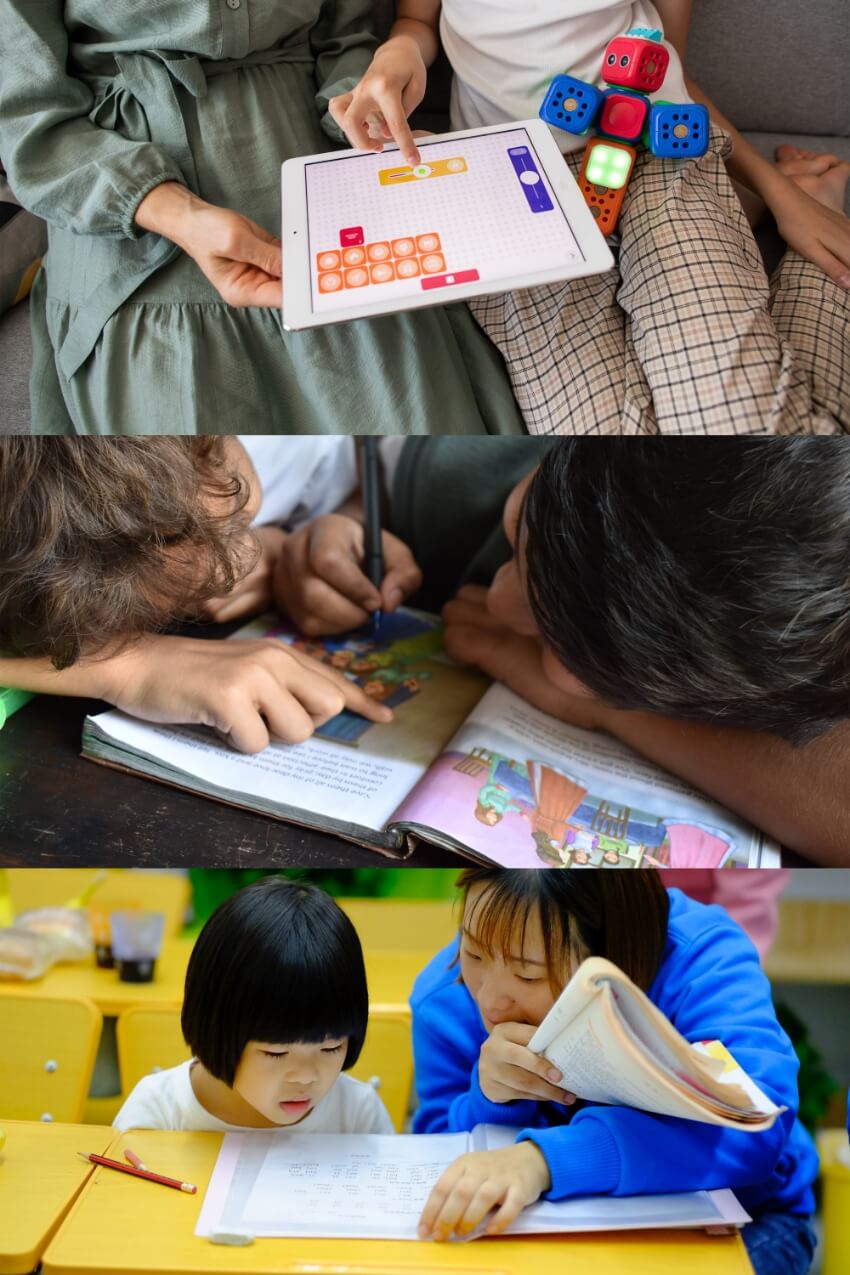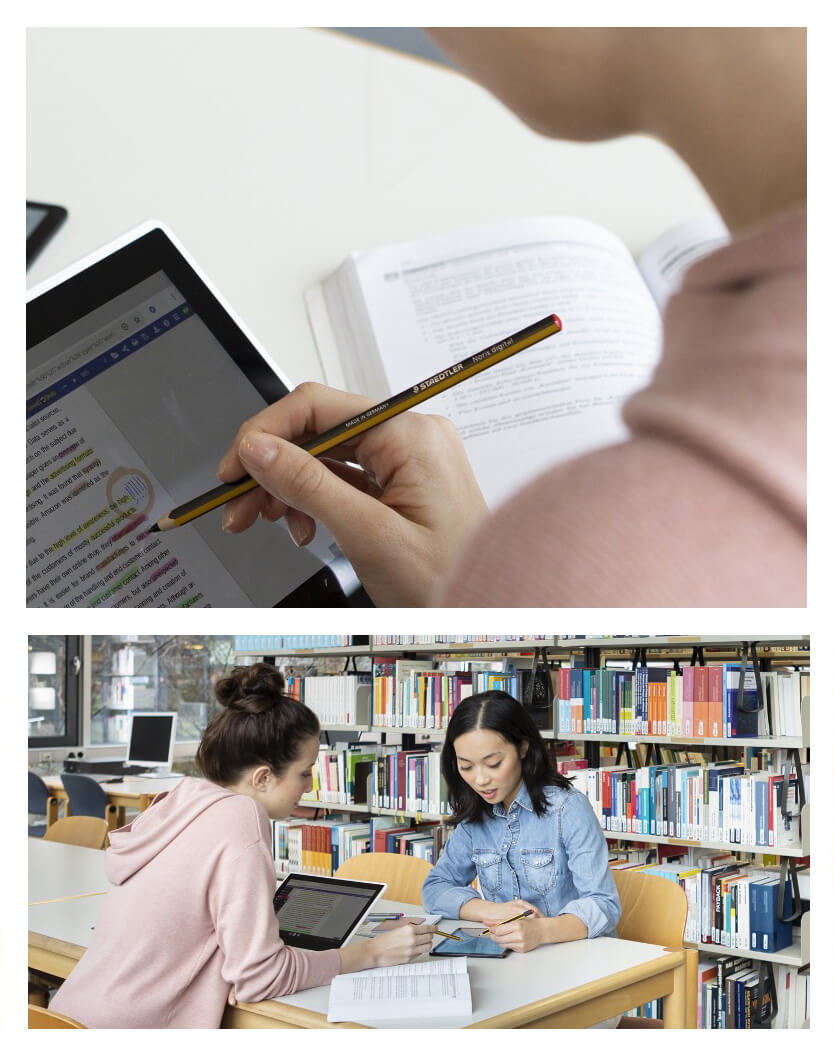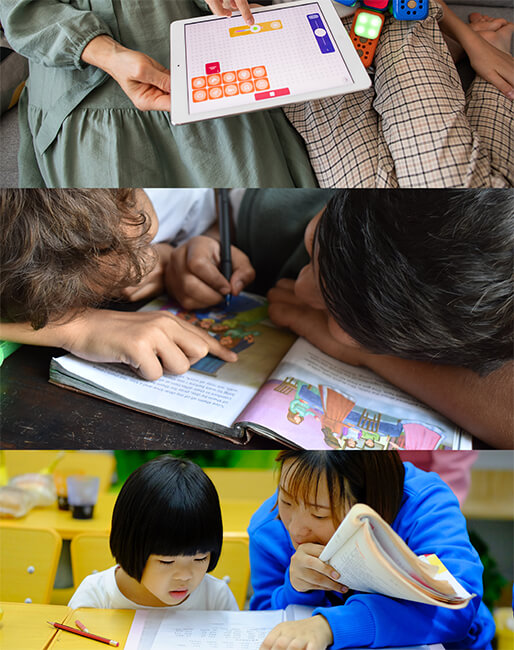EDUCATION THAT MATTERS
“Digital” and “education” together in one sentence have become a major buzz phrase in recent years. There is no doubt that digitalizing schooling is a vital step to move into the future of education, and Wacom is working hard to support this transformation. However, there is a world beyond equipping classrooms with hardware. This world beyond the screen is a world in which many students, children as well as adults, face the harsh reality of inequal education.
Therefore, at this year’s Connected Ink, Wacom wants to shine a light on several outstanding European education initiatives, discuss important topics with representatives from the forefront of education and companies that work towards digitalizing education in a meaningful way.

WORKING TOWARDS EQUALITY IN EDUCATION
12-15% of the world’s population is affected by Dyslexia, commonly known as reading disorder – but most learning apps do not facilitate learning for children and adults with learning disorders. While technology, of course, offers great possibilities to provide tailored support, we are a long way from having achieved this support in school and beyond in a way that equips every learner with equal opportunities. Two initiatives that tackle this issue are Learn & Go from France with their learning app Kaligo, as well as Texthelp from Northern Ireland. The latter was founded by Martin McKay, for whom his passion for supporting people with special education needs began when he was 12 years old, and his father had a stroke.
Amongst other challenges, he had to relearn how to write, and accompanying him through this inspired Martin to later create assistive software for inclusive communication that, as of today, already helps over 50 million to understand and be understood. Martin’s goal is to have helped 1 billion people by 2030. Learn more about this story in the session Helping Hands in Education.

In Germany, there is a 22% difference between children of families of academics and working class families regarding who will be recommended to continue on to an academic high school or lower secondary school – a system that leads to many kids being led onto schooling and career paths based on the social opportunities they are born into, instead of their capabilities.
One initiative that has the tackling of this issue printed on their flag is Teach First Germany. As one initiative under the umbrella organization Teach For All, Teach First Germany’s vision is that each child in Germany leaves school with a degree and – much more importantly – believing in their own success. By recruiting recent graduates and young professionals into a program that, after several weeks of training, sends fellows into schools in underserved communities to serve as assistant teachers. Teach First Germany has reached close to 85000 students since its foundation in 2008 and is therefore by our definition without a doubt another Helping Hand in Education.
DIGITALIZED EDUCATION DONE RIGHT
Analogue, digital, or both? But how?
When talking about the digitalization of schooling and education overall, the pandemic had certainly been an accelerator in many ways. But while it was a driving force behind many changes towards a more digital future school and grassroots were sown in the education sector, the question remains how this can all be integrated into a proper “school of tomorrow”.
This year, Wacom participated in the #wirfuerschule hackathon, which was a civic participation hackathon centered around the initiative “Let’s bring future into school!” Wacom participated as a prize sponsor and jury member, which is where we got in touch with #wirfuerrschule initiator and founder of the teaching materials platform eduki, Max Maedler. He is a driving force in the digitalization of the German education sector and has several theses about why the switch to digital in the German education system during the pandemic resulted a rather heterogeneous outcome – and what needs to be done to make these changes sustainable on the long run. Some of these theses include that teachers, parents and students represent the true catalysts for movements in the system, not politics, and why schools and politics were bustling into digitization and got stuck in the chasm. More of Max’ insights into the drivers of successful digital education in this session: “Learning forward: how the right kind of digitization can transform education.”



